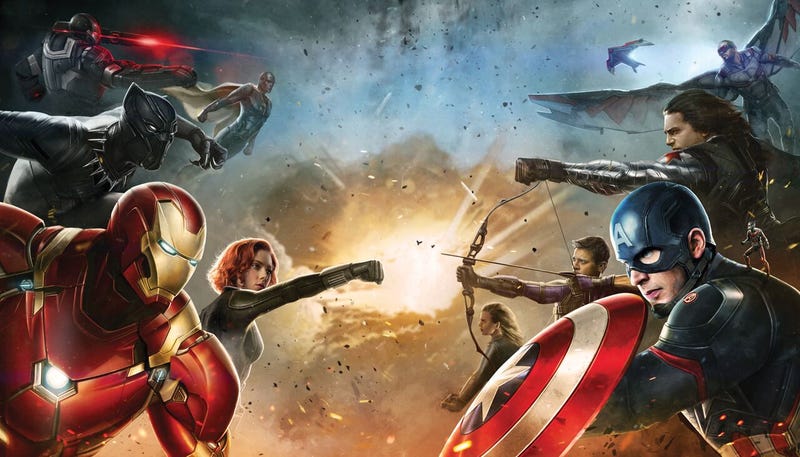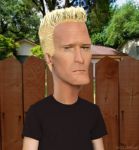Why the Captain America: Civil War Movie Worked When the Comics Didn't

Tags: USA
Why the Captain America: Civil War Movie Worked When the Comics Didn't published by Evanvinh
Writer Rating: 5.0000
Posted on 2016-05-10
Writer Description: Evanvinh
This writer has written 733 articles.
Captain America: Civil War isn’t a perfect movie, but it is vastly superior to the comics that inspired it. We’ve discussed the many problems with Marvel’s Civil War miniseries in the past, but they’re issues that Cap’s latest cinematic outing deftly avoided while still remaining recognizably Civil War—and here’s how.
The first thing the movie does right was simplifying and improving the issue that tears Tony and Steve apart. In the comics, it was the Superhuman Registration Act (or SHRA, which I like to pronounce “She-Ra”) which forces all costumed heroes to reveal their identities to the government while working for it. The way it was written made shades of gray impossible, as all superheroes basically become wanted criminals until they comply.
The movie dials back the law into something much more defendable: oversight of a small fighting force that is correctly described as violating national borders with no concern for international law. Instead of taking into custody anyone who doesn’t register, the Avengers who don’t want to sign the Accords can retire. It’s just acting without authorization that turns them into criminals, not their mere existence.
But the biggest Civil War problem the movie fixes had to do with how it handles the characters. The comics put Iron Man and Captain America on opposites side of the issue almost arbitrarily, and in order to heighten the conflict, the characters suffered extreme character assassination. Tony Stark in particular suddenly became so pro-SHRA that he was 100% willing to secretly clone, imprison, and even murder his former friends and teammates. He even hired supervillains to catch those heroes who refused to obey the law, as if that wasn’t obviously absurd.
The movie carefully and cleverly ensures there’s no out-of-character behavior. For most of the heroes in Captain America: Civil War, the side they end up on has a very strong basis in the character that’s been established in the other movies. We’ll get to the big names in a sec, but based solely on what we’ve seen in the MCU, all the characters pick sides that make sense. On the side of the Sokovia Accords, we see Rhodey—who, outside from being Tony’s best friend, lays out why he thinks oversight is needed. It’s not a totally shocking decision from an officer in the military. Vision’s position is based on his statistical analysis of how their power invites crazy supervillains to challenge them. And Black Panther starts out in support of the Accords following the deaths of Wakandans and stays on that side in order to go after the Winter Soldier, whom he believes killed his father. Spider-Man’s a teenager that Tony personally recruits.
On Cap’s side is Wanda. She doesn’t pick a side immediately, recognizing that she has caused harm. Since she spent Age of Ultron blaming Tony for what his weapons did, her feeling responsibility for how this all starts works. Her eventual choice, while forced by Clint, also works in the context of Age of Ultron. Wanda’s MCU backstory has her initially working for Strucker and Ultron before changing sides once the truth was revealed. At the end of the day, Wanda picking to have personal control over what she does, rather than surrendering it to a group with agendas, makes the most character sense.
Cap has Sharon and Sam on his side, people who believe in and trust him. We saw Sharon pick Cap over what looked like legitimate orders in Winter Soldier, and Civil War has her articulate her personal morality and bending only so far before planting yourself. And Sam? Is always going to be on Cap’s side. And Scott Lang, the ex-con who tried to follow the rules when he got out, got screwed, and then spent a movie trying to steal technology away from someone who wanted to sell it? Yeah, despite the humorous hero worship it’s presented as, Scott’s position is obvious.
Natasha is always pragmatic. She thinks something is coming, so she initially chooses the Accords… but when it becomes clear Steve won’t stop, she helps him and Bucky escape.
And then there are the guys at the forefront of each side. While Tony and Steve explain their positions in philosophical terms, it is equally clear that their own particular character history plays into their choices. Steve’s always bent or broken the rules to do what he believes he has to do, all the way back to before he got the serum. And his big hero moment in The First Avenger was disobeying orders. The Winter Soldier had him question SHIELD’s intrusions into privacy and their methods even before it turns out to be HYDRA. And after that reveal, of course he’s going to be even more skeptical.
Tony’s arc in the movie universe has a lot of guilt in it. And he’s tried every version of making it right. He stops making and selling weapons and turns himself into a hero. He refuses to turn his suit over to the government and funds the Initiative himself. But being under his own control is how he ends up creating Ultron, so he tries substituting his judgment for the safeguards in the Accords. And when that proves to have led to the wrong result, he jettisons them, too.
In the comics, Tony just kept being wrong and the disaster that resulted from every one of his awful choices went unacknowledged by him. From faking an assassination attempt to bugging Spider-Man, Tony fully commits to every awful thing he does in the comics.
Captain America: Civil War, on the other hand, turned Tony Stark being wrong from a bug to a feature. Halfway through the film, Tony discovers that Bucky was set up, and when he can’t convince Thaddeus Ross of what he’s found, he ditches the rules of the Accords, too. In the comics, the SHRA sends unregistered superhumans into a hellish prison partially of Tony’s devising; in the movie, seeing his friends in the supervillain prison is another sign to Tony that he fucked up. Tony is wrong, Tony recognizes he’s wrong, and Tony acts according to that knowledge.
The comics wanted to make superheroes fight in what they thought would be a grand allegory about the debate about safety and personal freedom. And it wanted to shoehorn Captain America and Iron Man into the leaders of the fractions. So they were willing to completely assassinate everything about Iron Man and Captain America’s characters to make it happen. But the movie stays true to these characters above all else, and that makes it feel emotionally true. The Captain America: Civil War movie is a smaller story about these characters and their choices—choices that organically happen to lead to some of the best superhero battles we’ve ever seen. The comics wanted a war, and forced Marvel’s heroes to choose sides and fight, with no regard for their characters.
We understand the war in the movie, and we believe in the characters, even when they fight each other. And that’s exactly why Civil War the movie works.
Sources: https://flipboard.com/topic/coolstuff/why-the-captain-america%3A-civil-war-movie-worked-when-the-comics-didn%27t/a-2vymrL6YSZyjIKXsPOsVXg%3Aa%3A873302-951a03219e%2Fgizmodo.com
You have the right to stay anonymous in your comments, share at your own discretion.


